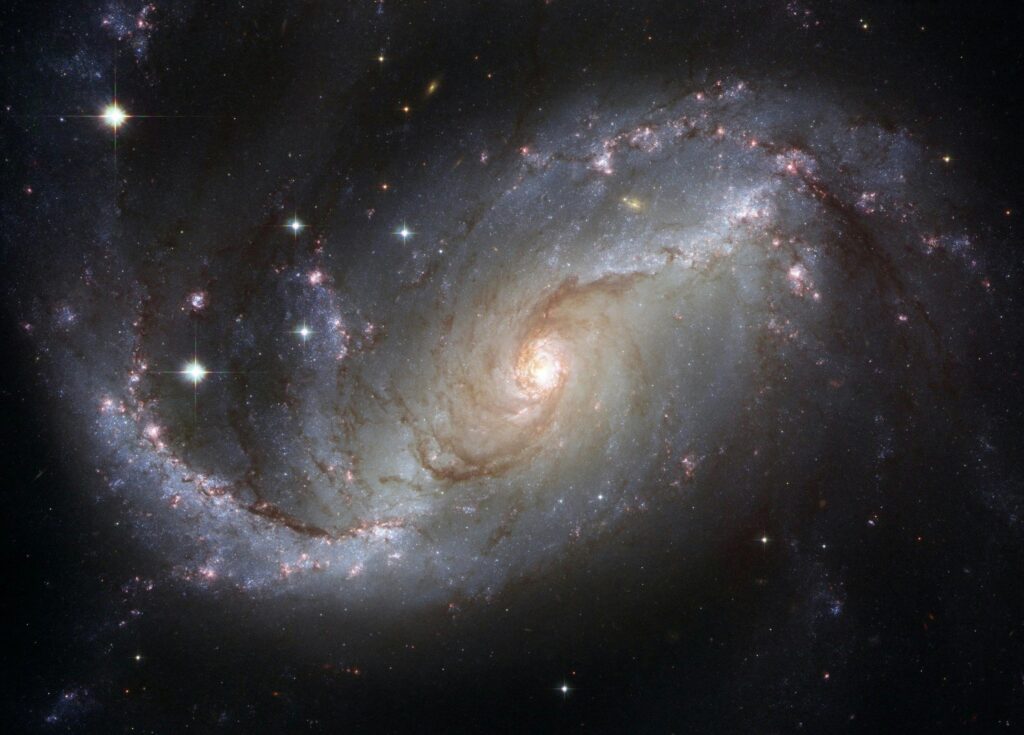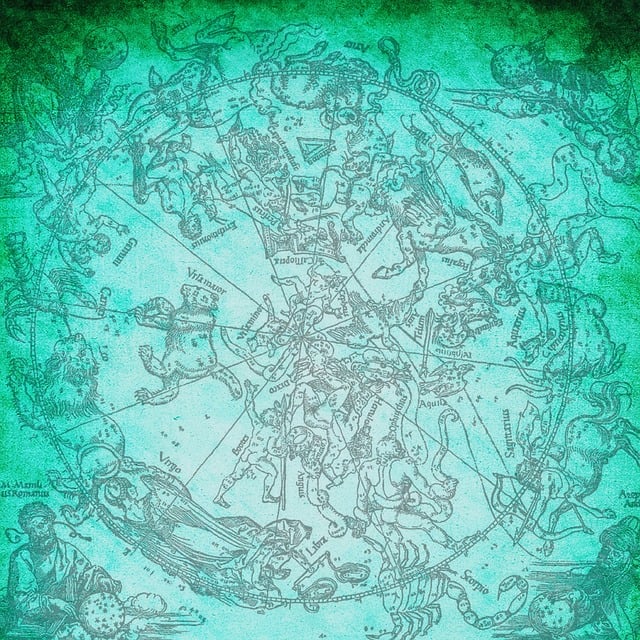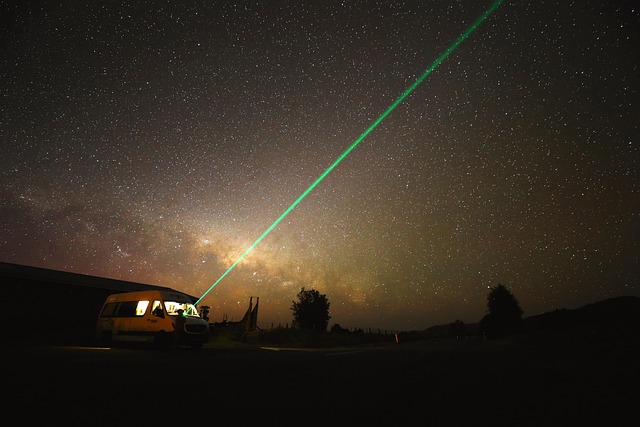Ok so I never thought I’d be writing about astronomy vs astrology, but here we are. My sister-family astrology nut, remember-recently got into an argument with her coworker about whether Mercury retrograde affects technology. The coworker kept insisting that astrology “isn’t real science” and my sister fired back with “well duh, that’s not the point.”
And honestly? They were both kind of right. Which is why I’m diving into this whole astronomy vs astrology thing, because apparently there’s a LOT of confusion out there about what each one actually is.
What Is Astronomy? (The Science Part)
Astronomy is the scientific study of celestial objects-stars, planets, galaxies, all that stuff up there. It’s about measuring distances, understanding how planets move, figuring out what stars are made of, and basically doing math about space.
Astronomers use telescopes, satellites, and some seriously complicated equipment. They’re asking questions like “how old is this galaxy?” or “what happens inside a black hole?” They’re using physics, chemistry, and a whole lot of data analysis.
My Gemini brother went through a brief astronomy phase last year (he cycles through hobbies like I cycle through plant pots-frequently and with enthusiasm). He downloaded this app called SkySafari and spent three weeks identifying constellations from our mom’s backyard. The app uses actual astronomical data to show you what’s in the sky based on your location and time.
That’s astronomy. Observable, measurable, testable.
What Is Astrology? (The Interpretation Part)
Astrology, on the other hand, is the belief system that says the positions of celestial bodies at the time of your birth influence your personality and life events. It’s been around for literally thousands of years-way longer than modern astronomy, actually.
When someone asks “what’s your sign?” they’re talking about astrology. The twelve zodiac signs, birth charts, Mercury retrograde affecting your communication-that’s all astrology territory.
Here’s where the astronomy vs astrology distinction gets important: astrology uses astronomical observations (like where Mars was when you were born) but applies a symbolic, interpretive framework to them. It’s not trying to be predictive science. It’s more like… a personality framework? A lens for self-reflection?
(My sister would kill me for being so reductive, but whatever.)
The Historical Split Between Astronomy and Astrology
For most of human history, astronomy and astrology were basically the same thing. Ancient Babylonians tracked planetary movements for both practical calendars AND divination purposes. They didn’t see a difference.
The split happened gradually during the Scientific Revolution (roughly 16th-17th centuries). As the scientific method developed, astronomy became focused on empirical observation and mathematical laws. Astrology stayed in the realm of interpretation and symbolism.
By the 18th century, they were completely separate. Astronomy became a respected science. Astrology became… well, what it is today-a mix of spiritual practice, entertainment, and genuine belief system, depending on who you ask.
I actually wrote about the ancient origins of zodiac signs after falling down a research rabbit hole one night (thanks, insomnia). The historical context is genuinely fascinating, even if you don’t believe in astrology at all.
Key Differences: Astronomy vs Astrology
Let me break down the main differences because this is where people get confused:
Purpose:
- Astronomy seeks to understand the physical universe through observation and mathematical models
- Astrology interprets celestial positions as meaningful for human affairs and personality
Methodology:
- Astronomy uses the scientific method-hypotheses, experiments, peer review, the whole deal
- Astrology uses symbolic interpretation based on traditional systems developed over centuries
Predictability:
- Astronomy makes testable predictions (like when eclipses will happen, where planets will be)
- Astrology makes interpretive suggestions that aren’t scientifically testable
Tools:
- Astronomers use telescopes, spectroscopy, mathematical calculations
- Astrologers use ephemerides (basically planetary position tables), birth charts, and traditional rulerships
Professional Recognition:
- Astronomy is taught at universities as a hard science, requires advanced degrees
- Astrology is… not (though some schools offer courses in it as cultural studies)
Why the Confusion Exists
Part of the reason astronomy vs astrology confuses people is that they share terminology. Both talk about planets, constellations, and zodiac signs-but they mean different things.
For example: astronomers know that the constellation boundaries have shifted over thousands of years due to something called precession. Your “sign” in Western astrology is based on where the Sun was relative to the zodiac 2,000 years ago, not where it actually is now in astronomical terms.
And honestly? Most astrologers know this. They’re working with a symbolic zodiac that’s separate from the astronomical constellations. But people who don’t understand the astronomy vs astrology distinction think this is some kind of “gotcha” that proves astrology is wrong.
(It doesn’t prove anything except that people are arguing about two different systems.)
Different cultures even interpret the same constellations completely differently-I explored that more when I wrote about how different cultures see constellations, and it really drove home how much of this is cultural interpretation versus observable fact.
Can You Appreciate Both?
Here’s my take: you can absolutely appreciate astronomy AND find value in astrology without contradiction.
I love knowing that Mars is actually this rocky red planet about 140 million miles away, formed billions of years ago, with mountains twice the size of Everest. That’s astronomy, and it’s incredible.
I also find it useful to think about Mars energy in my birth chart as representing drive and action-especially when I’m trying to figure out career paths or understand my own motivation patterns.
These aren’t in conflict. One is scientific knowledge about the physical universe. The other is a symbolic framework I choose to use for self-reflection.
My Scorpio boyfriend (astronomy enthusiast, astrology skeptic) puts it this way: “You can know exactly how your brain chemistry works and still find therapy helpful.” Fair point.
The Science Doesn’t Validate Astrology-And That’s Fine
Look, I need to be clear about this because the astronomy vs astrology debate gets weirdly defensive on both sides: there is no scientific evidence that planetary positions at birth cause personality traits or life events.
Astronomers and physicists have looked. The gravitational pull of Jupiter on a newborn baby is less than the gravitational pull of the doctor in the delivery room. There’s no known mechanism by which planetary positions would affect human personality.
For the record, I’m totally okay with that.
I don’t need astrology to be scientifically validated to find it useful. I use my zodiac sign and birth chart kind of like I use personality frameworks like Myers-Briggs or the Enneagram-as tools for self-awareness and understanding different approaches to life. The problem-solving styles associated with different signs genuinely help me understand why my Capricorn mother approaches challenges differently than my Gemini brother.
Does that mean the stars are causing these differences? Probably not. But the framework is still useful.
What Astronomers Actually Think About Astrology
Most professional astronomers I’ve read about (through various interviews and articles-I’m not personally hanging out with astrophysicists) are pretty neutral about astrology. They don’t consider it science, but they also don’t spend much time arguing against it.
The frustration comes when people confuse the two. When students think astronomy classes will teach them about horoscopes. When someone dismisses actual space science because they think it’s “all just astrology.”
That’s where the astronomy vs astrology distinction really matters. They’re separate things. Treating them as the same diminishes both.
Astronomy Discoveries That Changed Astrology (Sort Of)
Here’s something interesting: astronomical discoveries have forced some changes in astrological practice over the centuries.
When Uranus was discovered in 1781, astrologers eventually incorporated it into their systems. Same with Neptune (1846) and Pluto (1930). Modern astrology now includes these outer planets in birth chart interpretations, even though ancient astrology obviously didn’t.
But here’s the thing-these additions weren’t based on scientific validation. They were based on astrologers observing (or believing they observed) meaningful correlations between these planetary discoveries and world events or personal experiences.
It’s kind of a weird intersection of the astronomy vs astrology divide. Astronomy discovers the physical object. Astrology assigns it symbolic meaning.
Why Some Scientists Get So Annoyed
I get why some scientists are frustrated by astrology’s popularity. They spend careers studying the actual, measurable universe-the physics of star formation, the chemistry of planetary atmospheres, the mathematics of orbital mechanics-and then someone with a million TikTok followers is making money telling people that Mercury retrograde is why their ex texted them.
It probably feels dismissive of the real work they’re doing.
But also? People contain multitudes. My sister has a master’s degree in public health (very science-based) and still checks her horoscope every morning. My boyfriend loves astrophysics documentaries and teases me about my birth chart. These things coexist.
The key is not confusing which is which in the astronomy vs astrology conversation.
Practical Applications of Each
What Astronomy Gives Us:
- GPS satellites (literally wouldn’t work without understanding celestial mechanics)
- Weather forecasting
- Understanding climate change
- Space exploration
- Technology development
- Understanding our place in the universe
What Astrology Gives People:
- Self-reflection frameworks
- Conversation starters (honestly, a real thing)
- Community and shared language
- Timing and planning tools (for those who use electional astrology)
- Personality insight lenses
- Entertainment and cultural engagement
Neither list is a judgment. They’re just… different categories of value.
I’ve genuinely found that thinking about my zodiac sign’s approach to sustainability helped me work WITH my tendencies instead of against them. That’s not science. But it’s been useful.
The “Sun Sign” Confusion
One last thing about astronomy vs astrology that trips people up: sun signs.
When someone says they’re a Taurus (me, hi), they mean the Sun was in the Taurus section of the zodiac when they were born. But astronomically, the Sun might have actually been in the constellation Aries due to that precession thing I mentioned earlier.
Most Western astrologers use what’s called the “tropical zodiac,” which is based on the seasons and the equinoxes, not the actual constellation positions. It’s a fixed symbolic system.
Some astrologers use the “sidereal zodiac,” which does account for precession and aligns more closely with the actual astronomical positions.
Different systems. Different purposes. Not right or wrong-just different frameworks.
When the Debate Gets Silly
The astronomy vs astrology debate gets ridiculous when people on either side act like the other shouldn’t exist.
Scientists who spend time crusading against astrology are probably wasting their energy. Like, there are flat-earthers and climate change deniers out there causing actual harm with science denial-astrology isn’t that.
Astrologers who claim their practice is “scientific” are also missing the point. It’s not. And that’s okay! Not everything valuable needs to be science.
Both sides need to chill, honestly.
My Personal Relationship With Both
I watch space documentaries and cry at the vastness of the universe. The astronomy stuff-knowing we’re on a rock hurtling through space, that we’re made of star stuff, that there are galaxies so far away their light hasn’t reached us yet-it’s profound and beautiful and humbling.
I also check my lunar living patterns and adjust my morning routine based on what’s happening astrologically. I plan my self-care based on my star sign’s stress patterns. I even organized my home decor choices with my Taurus tendencies in mind.
These things coexist in my brain without conflict because I understand the astronomy vs astrology distinction. One tells me about the physical universe. The other gives me a framework for understanding myself and others.
The Bottom Line on Astronomy vs Astrology
Look, here’s what matters: astronomy vs astrology isn’t actually a debate that needs a winner.
Astronomy is the scientific study of celestial objects and phenomena. It’s empirical, testable, and gives us knowledge about the physical universe.
Astrology is an interpretive practice that uses celestial positions as a symbolic framework for understanding personality and life patterns. It’s not science, doesn’t claim to be (when practiced honestly), and provides value through meaning-making rather than empirical truth.
They’re different things. Both can exist. You can appreciate the science of space without caring about zodiac signs. You can find astrology meaningful without knowing anything about astrophysics. You can – like me – appreciate both for what they each offer.
The confusion between astronomy vs astrology mostly causes problems when people conflate them or use one to dismiss the other. Keep them separate in your mind, understand what each is actually claiming, and suddenly the whole debate gets a lot less heated.
Now if you’ll excuse me, I have some basil to water and a space documentary queued up. Because containing multitudes is basically my whole personality at this point.
(And yeah, my sister is definitely going to text me about this article. That’s fine. She can have her “I told you so” moment about the astronomy vs astrology thing. She’s earned it.)



